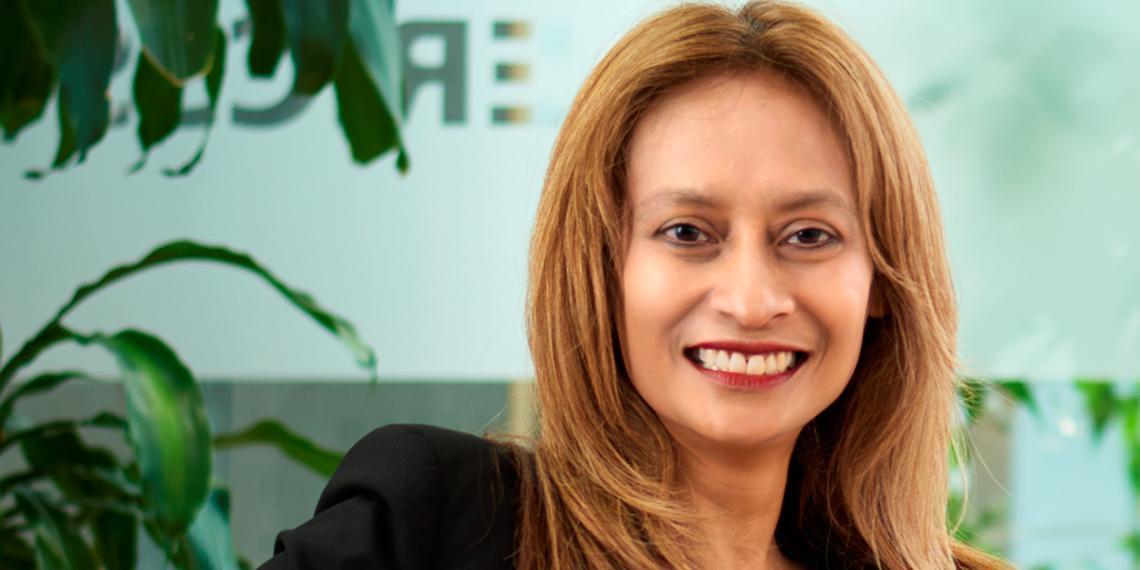In an interview with Telecom Review, Rafiah Ibrahim, President and Head of Ericsson Middle East and Africa, talked about the significance of 5G technology as an innovation platform.
5G technology will provide an innovation platform enabling emergent technologies such as the Internet of Things (IoT) to become integral parts of our economy and lifestyle. The question is, how will this technology be rolled out in the Middle East, how it will be used by the various industries and what business reasons are driving the 5G roll out and adoption?
Furthermore, 5G is the foundation for expanding the potential of the Networked Society where everything that can benefit from a connection will be connected. The move to the technology will add a new element: the industrial internet. We'll see new as-a-service business models based on network slicing. Moreover, 5G will enable more secure transactions and expand the battery life of IoT devices by 10 times. All this will create opportunities for new use cases that we haven't yet dreamed of.
Rafiah Ibrahim, President and Head of Ericsson Region Middle East and Africa, sheds light on the ways that, if done right, 5G can benefit a host of different industries throughout the MEA region. She said: "5G offers the biggest opportunity to date, not only for the ICT industry, but for all other industries. To ensure that it reaches its full potential, collaboration between the different industry players in both the public and private sectors will be key to ensure that we have a global standard in place that prevents fragmentation."
When it comes to adoption of the technology, the Middle East is an extremely diverse region from ICT maturity perspective and economic advancement- if you look at something as simple as GDP, the variations from country to country are incredibly vast - Qatar, for example, has the highest GDP per capita ratio in the world, while Afghanistan is among the countries with the lowest. Hence, the technology adoption in each country is a direct correlation of the development. Having said that, this is also a region riddled with possibility. The uptake of 4G technologies is on the rise in countries such as Lebanon and Turkey, as well as the entire GCC region. Operators are also investing in the upgrade of legacy infrastructures to accommodate the anticipated growth in mobile traffic with the rise of the Internet of Things, as well as the ongoing industry transformation that requires increased mobility.
5G, however, will open new doors of opportunity for the region. "This is the next big thing. For new industries wanting to make use of the technology, 5G could be very disruptive. It is a powerful technology, and services which currently depend on fiber can now tap into 5G," added Ibrahim. It is a completely novel technology that will enable machine-to-machine and machine-to-human communication opening new doors for service providers and the industry alike. 5G will enable new applications and use cases in areas such as cloud-enabled robotics and intelligent transportation that can benefit people, business and society - and it will therefore help realize the full potential of the Networked Society. "At Ericsson, we have a clear and differentiated position in relation to 5G, supported by strong proof points and use cases. We believe that 5G is a system that will interwork with existing 4G networks," said Ibrahim.
Growth through innovation is the promise of 5G. By enabling new applications and use cases that benefit people, business and society, 5G will help realize the full potential of the Networked Society. 5G systems will use both physical resources and network virtualization technologies. The concept of network slices is not new; a Virtual Private Network (VPN) is a basic version of a network slice. However, network slices in the context of 5G will be defined on a whole new level - they will be more like virtual networks on-demand.
"We're building the strongest global 5G ecosystem to enable rapid growth. And we are doing this by building closely interlinked, symbiotic relationships with operators, semiconductor vendors, IT-infrastructure providers, device manufacturers, standards bodies, open source communities and industries," Ibrahim concluded.
As a company, Ericsson has a clear wanted position for each of its stakeholder groups - a leading ICT transformation partner for customers, a value creator for shareholders, a responsible and relevant driver of positive change for society and for its employees, a company that attracts, develops and retains the best talents. As such, the company believes that with a multi-stakeholder approach, ICT can be the enabler of a sustainable, prosperous and truly globalized society so called the Networked Society.











